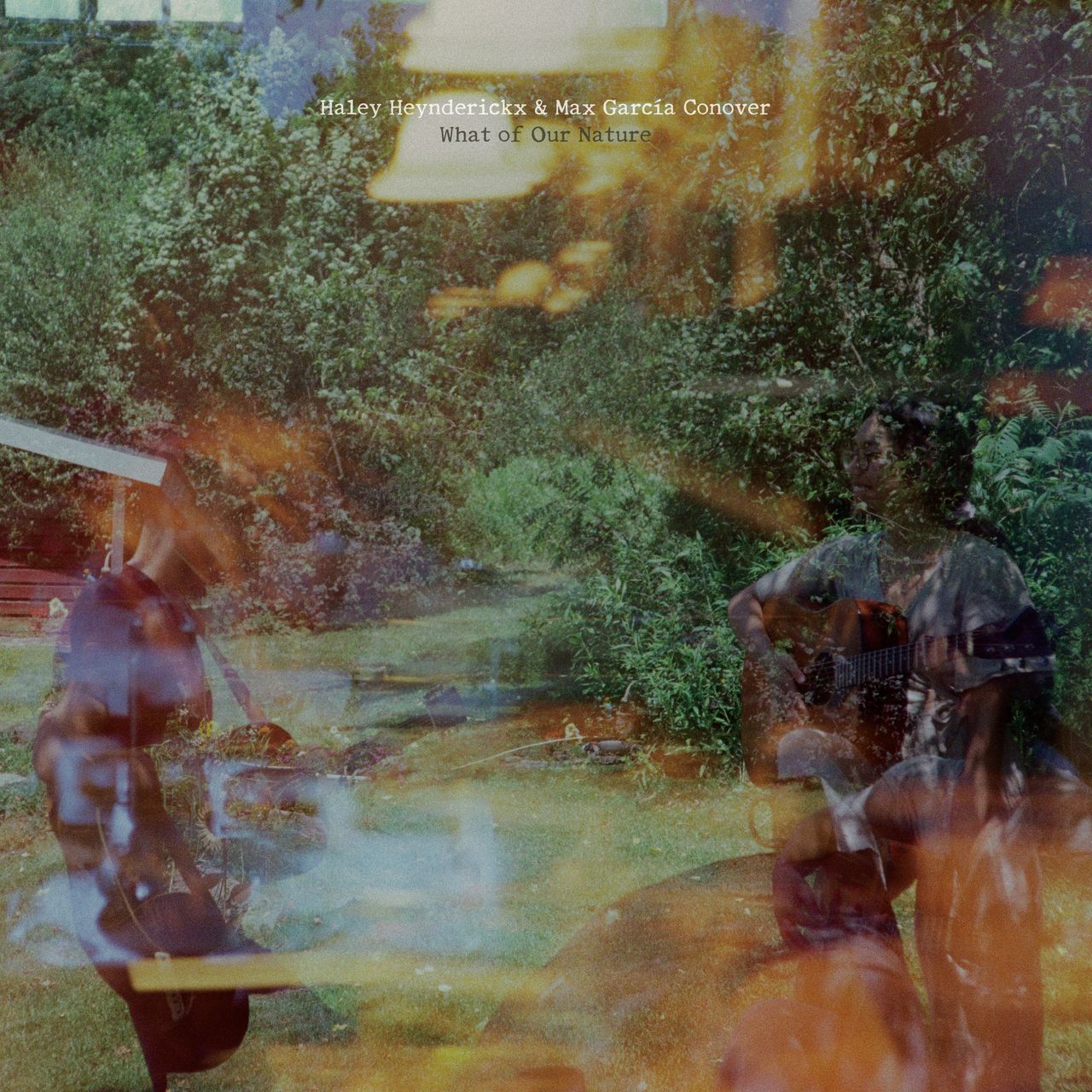When Woody Guthrie died at the untimely age of 55, in 1967, the pioneering folk singer left behind 28 linear feet of lyrics scrawled on, according to his archive, “tissue paper, onionskin, gift-wrap, napkins, concert programs, and even place mats”—scraps of ballads, union songs, and protest hymns for the next generation to sing. Guthrie’s prolific posthumous catalog has meant that, at the invitation of his daughter and archivist, Nora Guthrie, contemporary musicians like Billy Bragg & Wilco, Del McCoury, the Klezmatics, and the Dropkick Murphys have tried on Guthrie’s unsung lyrics over the years to find that his messages of radical humanism still fit perfectly.
To write “in the spirit of Woody Guthrie”—as Haley Heynderickx and Max García Conover aspire to do on their new collaborative LP, What of Our Nature—is a different undertaking than Mermaid Avenue or Del and Woody, requiring not only creative interpretation but political imagination. Heynderickx and Conover take the task seriously. On 10 spirited tracks that address topics like mass marketing, labor history, and the struggle for Puerto Rican independence, Conover and Heynderickx affirm Guthrie’s legacy not by resurrecting his words but by renewing his commitment to songwriting as a democratic exercise.
Heynderickx and Conover first collaborated on the 2018 EP Among Horses III, an intimate, mystical jewel box showcasing their respective gifts for hypnotism. Heynderickx’s plaintive warble, which evokes folk singers like Shirley Collins, is her primary instrument; Conover’s songs unfold in incantatory, tumbling rhythms that recall the verbose pleasure of Adrianne Lenker. On Among Horses, Conover and Heynderickx’s common ground was covered in papaya trees and praying mantises, castles and ghosts—a shared vocabulary of supernatural ecology that wove their songs together like spiderweb.
